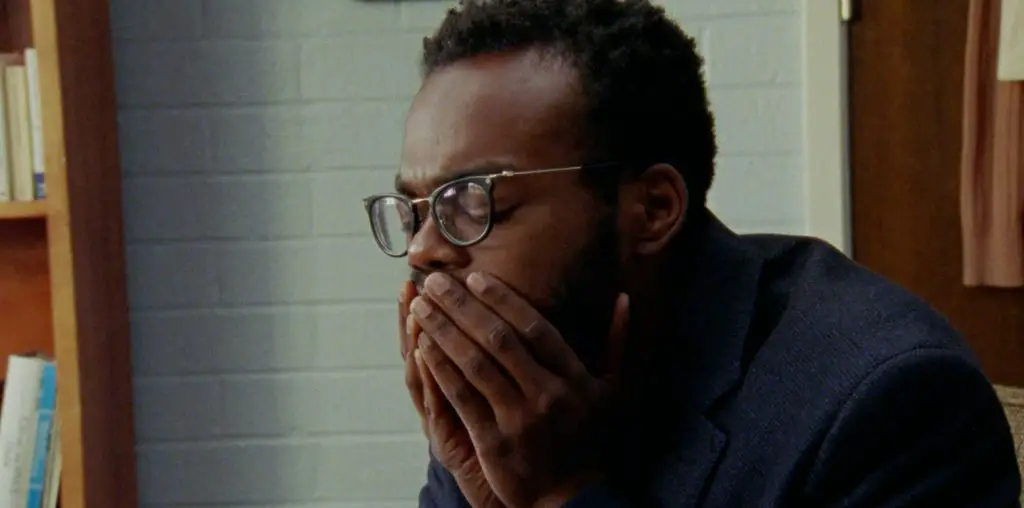
In Peter Blackmann’s short film, The Revolutionary, two people sharing a smoke break on a fire escape discuss the lack of revolution in today’s generation. Older smoker (David Intrator) remembers years of focused activism that today’s youth don’t seem to be capable of doing, despite their best efforts. He wants a real revolution. Younger smoker (Sarah Nadeau) hears him out, but also lets him talk his way into the real motive behind his hope for revolution, which is more hypocritical than initially thought. It’s a cynical, let perfectly focused, dissection of the conversation at hand, underscoring the real differences in the two, and that a revolution did occur, potentially only in thought.
Or at least that’s my take on this sub-five minute short film. I’m probably (definitely) projecting more than is actually there, but I’m also potentially missing the point. But that’s part of the joy and the challenge of being presented a simple conversation, and being left to interpret. Your mind can’t accept that it’s just an innocuous conversation, if someone thought it was worthy of filming, so there has to be something else in there. Right?
I do have a technical criticism, however. The film uses a light coming from below to highlight the faces as the two leads talk. And that’s fine, but the source of that light is never established, so it becomes distracting, particularly when older smoker moves his hands during a close-up and it casts a fleeting shadow on this face. Suddenly you’re aware of the light, and wondering what is glowing underneath them? Street light? The briefcase from Pulp Fiction? It’s distracting, regardless.
I’ve seen a few films from filmmaker Peter Blackmann now, and the one thing that is consistent (beyond the appearance of actor Sarah Nadeau) is that he’s interested in taking risks while simultaneously letting the narrative exist in the power of conversation. A Cup of Coffee was a one-note, somewhat goofy joke that still worked (mostly due to the film’s short running time), and Charlie’s Bag was a film full of absurd developments that you never see, but instead hear about as the two leads discuss. It’s a deliberate thumbing at the idea of films being “show, not tell,” but for Blackmann, it’s working.
And, again, that’s mainly because the edits don’t linger. Pacing-wise, the film knows what it has and doesn’t stick around a second beyond its positives. This conversation could get tiresome, but we’re not with it long enough. We get the point, we see the hypocrisy and cynicism, understand the equal parts humor and sadness, and we’re out. If you’re going to try and play with different ideas about what it is to make a film, this is how you do it.
This film was submitted for review through our Submission for Review system. If you have a film you’d like us to see, and we aren’t already looking into it on our own, you too can utilize this service.
